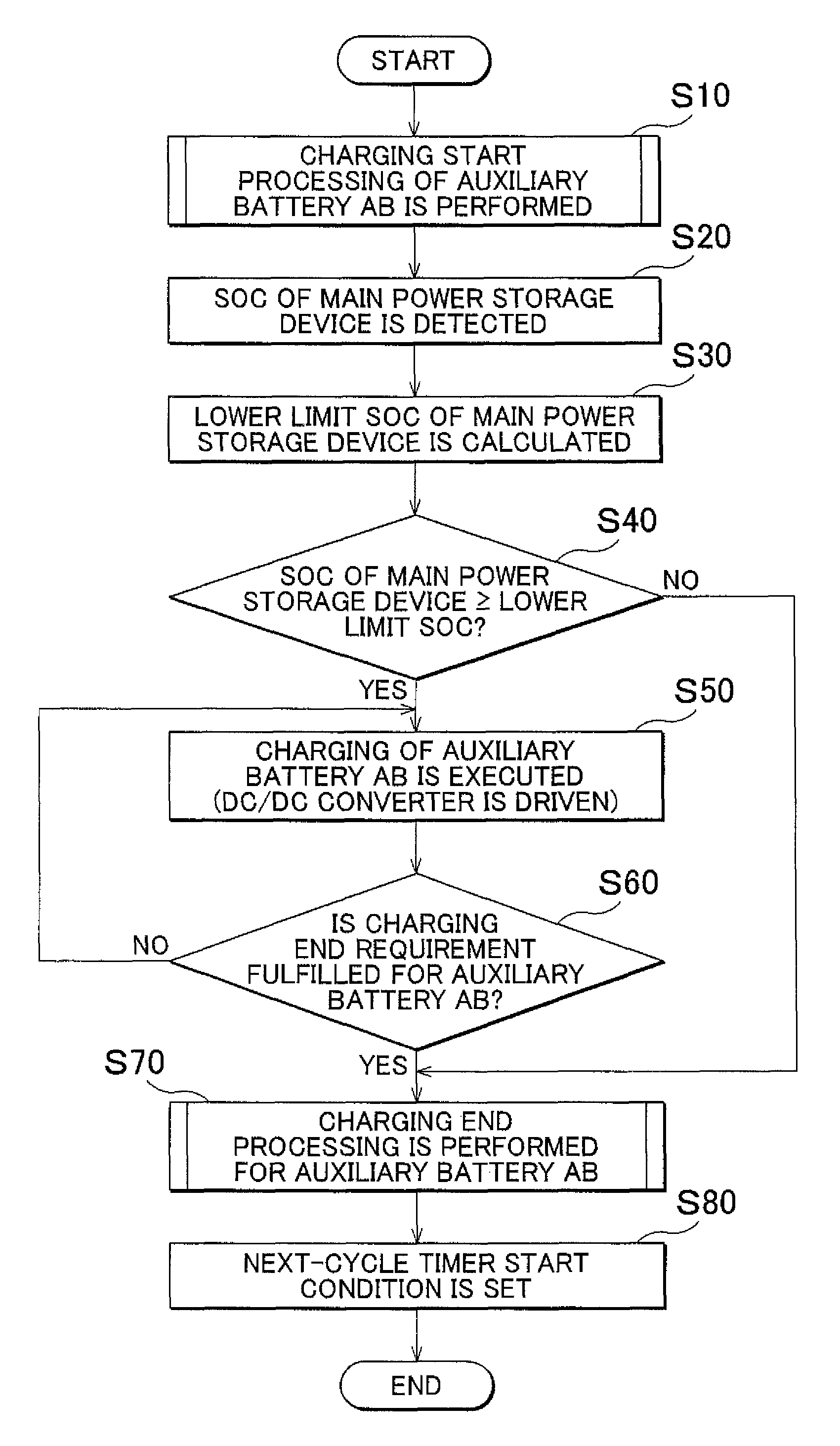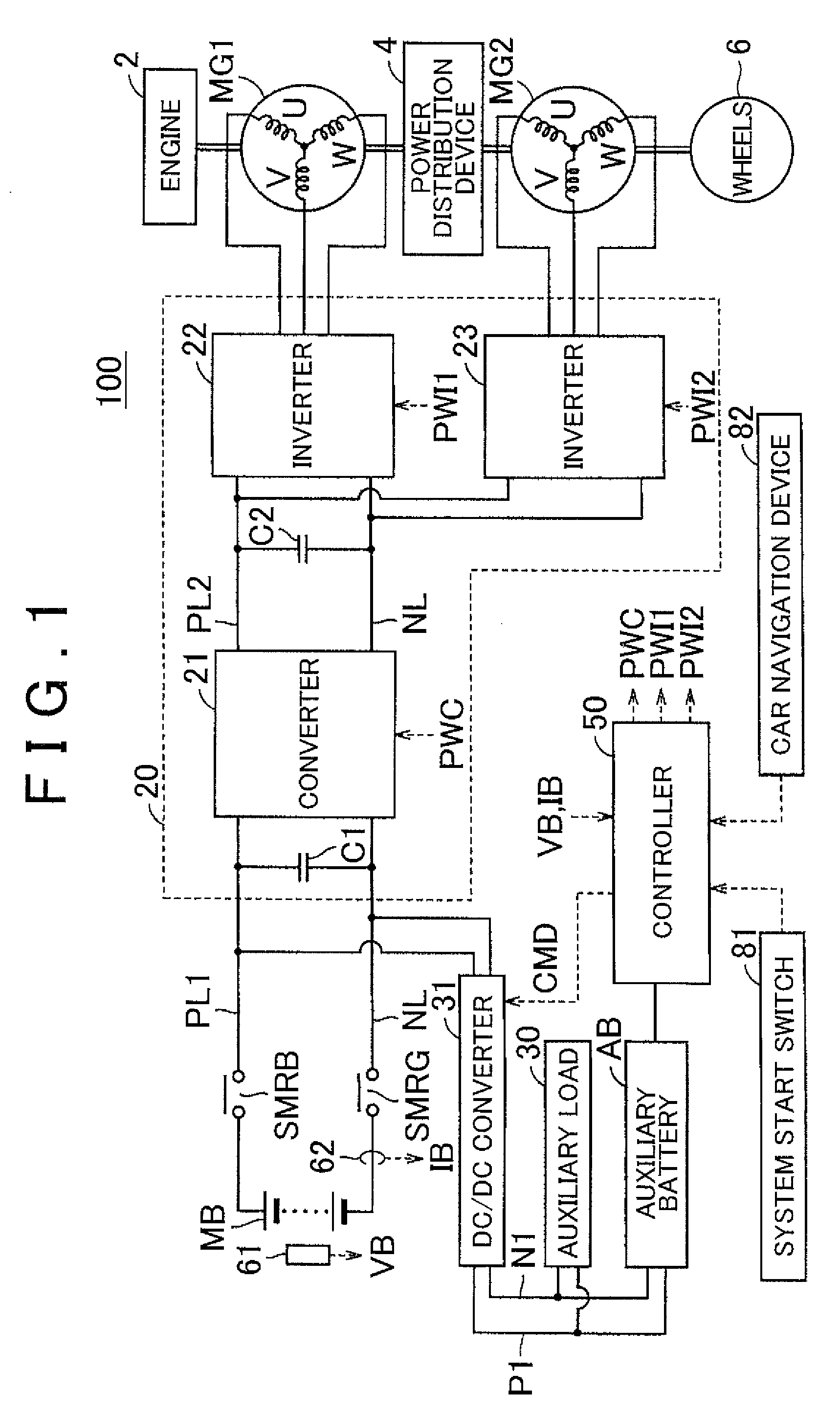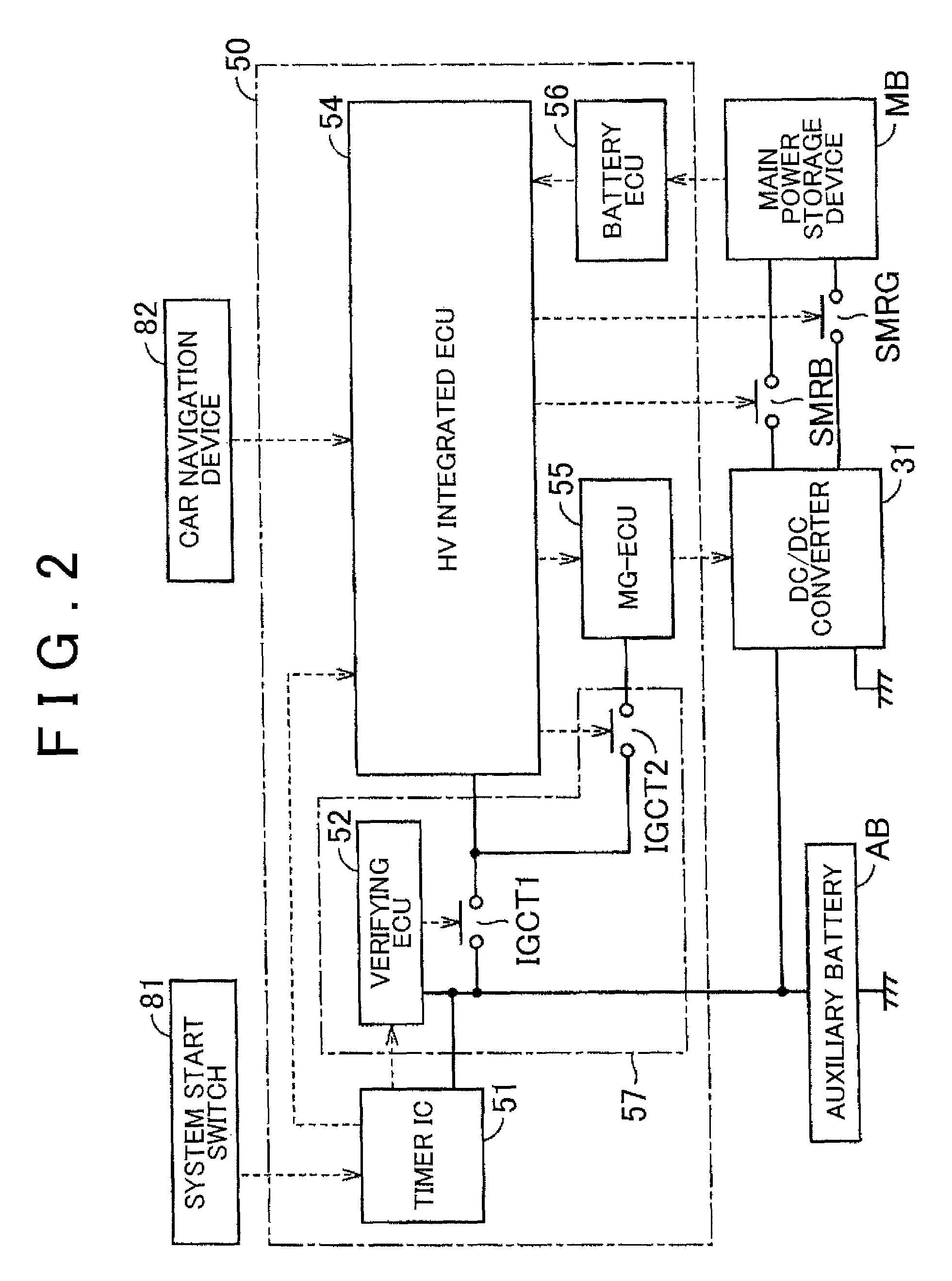Power source system for vehicle, vehicle, and vehicle control method
a power source system and vehicle technology, applied in the direction of battery/fuel cell control arrangement, transportation and packaging, battery/cell propulsion, etc., can solve the problem of unnecessarily restricting the charging of the low-voltage battery from the high-voltage battery, and achieve the effect of suppressing the power loss of the second power storage device more reliably
- Summary
- Abstract
- Description
- Claims
- Application Information
AI Technical Summary
Benefits of technology
Problems solved by technology
Method used
Image
Examples
embodiment 1
[0031]FIG. 1 illustrates the configuration of a vehicle carrying the power source system of the invention. Referring to FIG. 1, a vehicle 100 is provided with an engine 2, motor generators (MGs), i.e., MG1 and MG2, a power distribution device 4, wheels 6, a power control unit (PCU) 20, a main power storage device MB, system main relays SMRB, SMRG, a voltage sensor 61, and a current sensor 62. The vehicle 100 is also provided with an auxiliary battery AB, an auxiliary load 30, a direct current / direct current (DC / DC) converter 31, a controller 50, a system start switch 81, and a car navigation device 82.
[0032]The vehicle 100 carries the MG1, MG2 and the engine 2 as drive sources. The power distribution device 4 connects the drive shaft of the engine 2, the MG1, and the drive shaft of the wheels 6. The power generated by the engine 2 is distributed by the power distribution device 4 to two paths, namely, a path for transmitting power to the drive shaft of the wheels 6 and a path for t...
embodiment 2
[0078]FIG. 6 shows the entire configuration of the vehicle carrying the power source system according to Referring to FIG. 6, a vehicle 100A has the configuration of the vehicle 100 shown in FIG. 1 which is further provided with an outside air temperature sensor 71 and in which a controller 50A is used instead of the controller 50.
[0079]The outside air temperature sensor 71 detects the outside air temperature around the vehicle 100A and outputs the detected value to the controller 50A. The detected value of the outside air temperature sensor 71 is used to estimate the temperature of the engine 2 and the main power storage device MB when it is determined whether the charging of the auxiliary battery AB can be executed while the vehicle is parked. An engine water temperature sensor that detects the temperature of cooling water of the engine 2, and / or a temperature sensor that detects the temperature of the main power storage unit MB may be used instead of the outside air temperature ...
PUM
 Login to View More
Login to View More Abstract
Description
Claims
Application Information
 Login to View More
Login to View More - R&D
- Intellectual Property
- Life Sciences
- Materials
- Tech Scout
- Unparalleled Data Quality
- Higher Quality Content
- 60% Fewer Hallucinations
Browse by: Latest US Patents, China's latest patents, Technical Efficacy Thesaurus, Application Domain, Technology Topic, Popular Technical Reports.
© 2025 PatSnap. All rights reserved.Legal|Privacy policy|Modern Slavery Act Transparency Statement|Sitemap|About US| Contact US: help@patsnap.com



